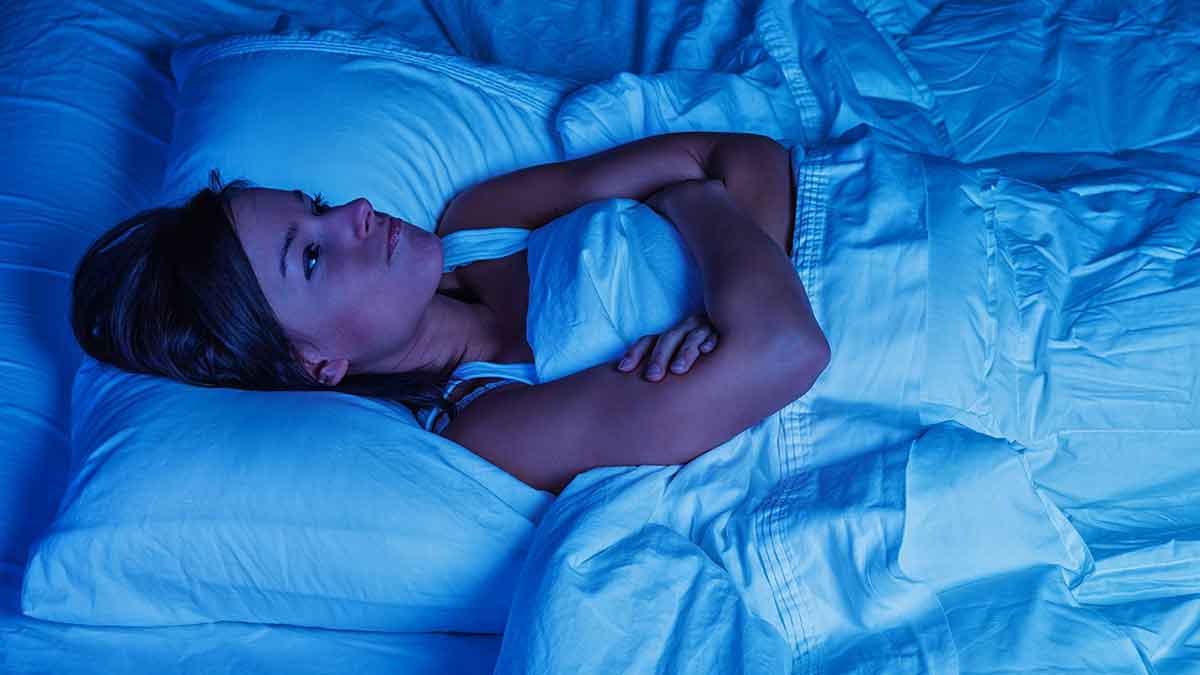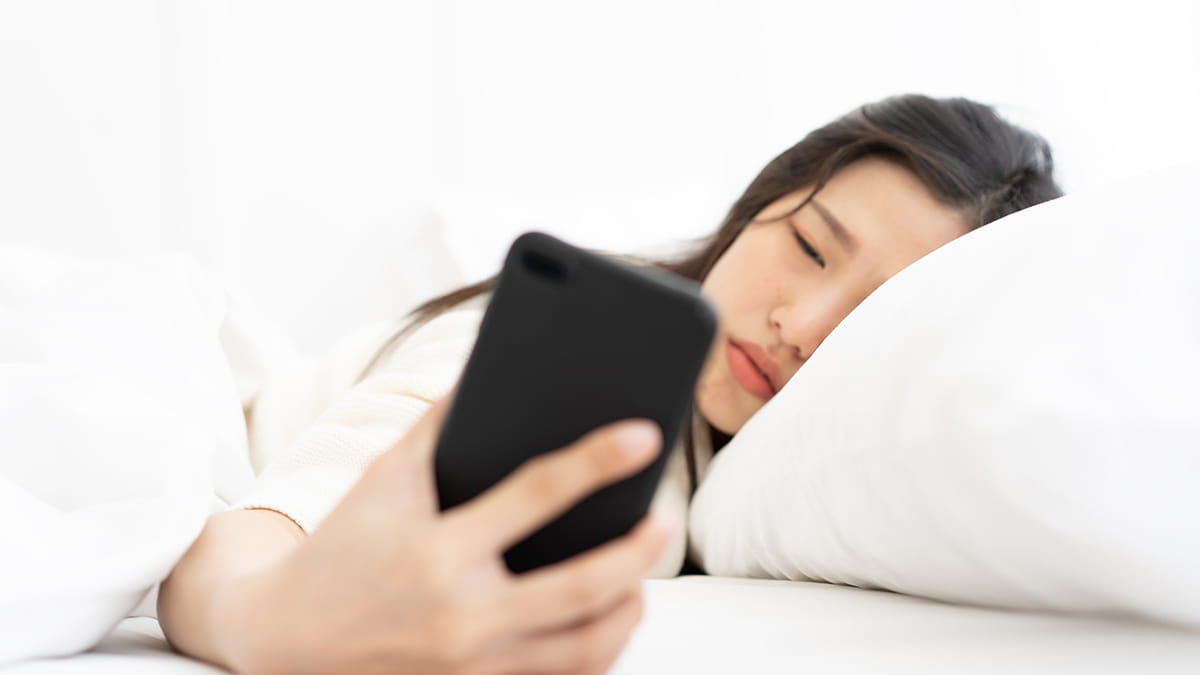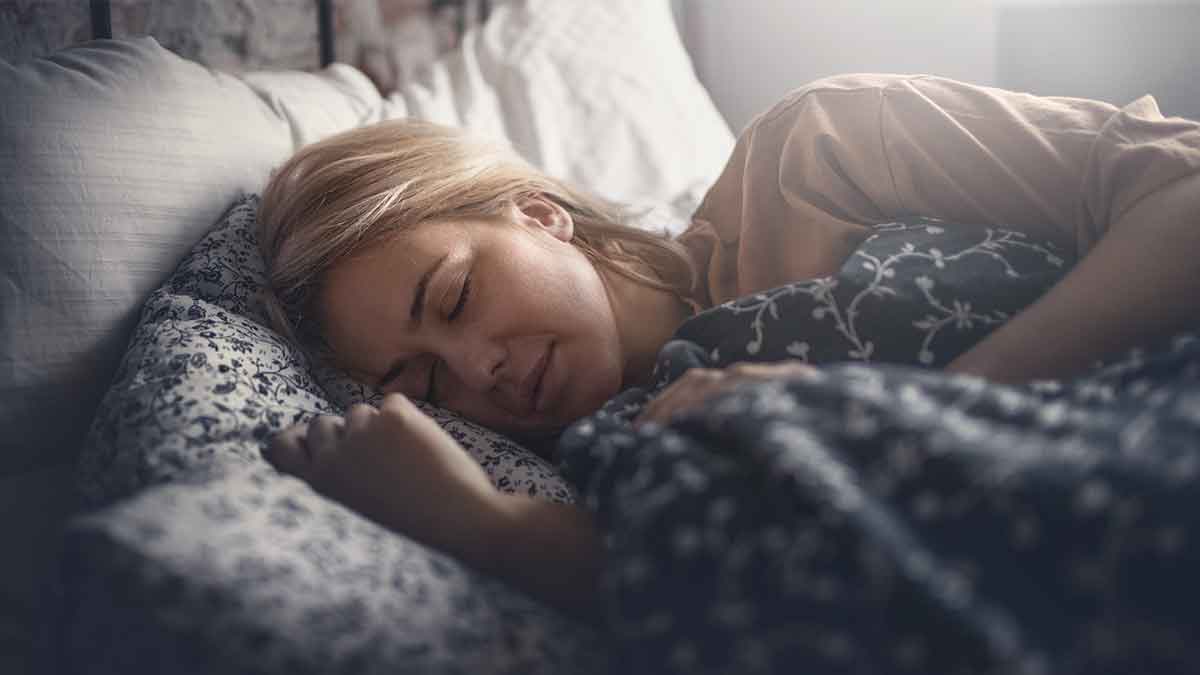How does melatonin affect your sleep?

Has this ever happened to you? It’s 2 a.m. again and you’re tossing and turning in bed, wide awake and wishing you could fall back to sleep. Or maybe you never fell asleep in the first place.
You’re worried that you’re not getting enough sleep, and wondering if there’s something – such as melatonin – that you can take to help.
Before you try any sleep supplements, talk to your doctor about your problems getting a restful night of sleep. Be sure to tell your doctor of any over-the-counter medications or supplements that you’re taking, due to the risks of side effects and potential interactions with prescribed medications.
What is melatonin?
Melatonin is a hormone produced primarily in the pineal gland in the brain that affects sleep and circadian rhythms. Melatonin plays a role in our circadian rhythm by increasing in concentration with the onset of darkness, also known as dim-light melatonin onset.
Is it safe to use melatonin for insomnia?
Melatonin is classified as a dietary supplement, and thus doesn’t have an official indication for insomnia. Melatonin currently isn’t a recommended treatment for insomnia, according to the American Academy of Sleep Medicine (AASM) Practice Guidelines. That’s because there’s generally a lack of data regarding effectiveness and potential side effects.
There is, however, a melatonin receptor agonist that’s currently approved for insomnia by the U.S. Food and Drug Administration (FDA). Ramelteon binds and activates melatonin receptors and has been shown to have some benefits for insomnia. Ramelteon is available only by prescription.
What should you consider before using melatonin?
Since melatonin is classified as a supplement, it can be purchased over the counter without a prescription. It’s important to know that there isn’t a firmly established dosage range for insomnia.
Also, since melatonin isn’t as stringently regulated by the FDA, concentrations and dosages in the over-the-counter formulations may vary. Also these preparations may also contain other additives that have their own potential side effects. We simply don’t have great data on melatonin use in insomnia.
Other supplements some people may try to help them sleep include tryptophan and valerian. However, these supplements aren’t recommended treatments for insomnia, according to the AASM’s Practice Guidelines.
What are other ways to safely improve your sleep?
Psychological and behavioral treatments such as cognitive behavioral therapy (CBT) are currently considered our best treatments for insomnia.
For example, if you’re having trouble sleeping, your therapist might ask you to monitor your moods, thoughts and behavior in a fairly structured way so that you’ll start to understand the relationship between your thoughts, feelings and behaviors.
In CBT, a typical appointment would include setting the agenda, reviewing your sleep logs, learning and practicing new skills, and receiving a new homework assignment to focus on building skills to help you sleep soundly through the night. Additionally, you’ll work with your therapist on how best to maximize your sleep while in bed and reduce your time in bed awake.
Lawrence Chan is a pulmonary, critical care and sleep physician at The Ohio State University Wexner Medical Center and an assistant professor at Ohio State’s College of Medicine.




